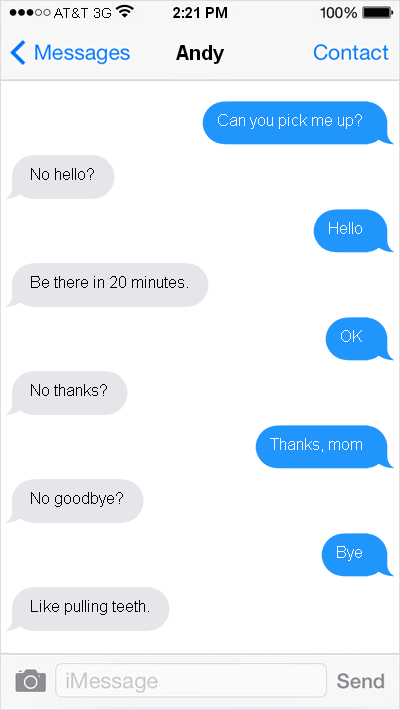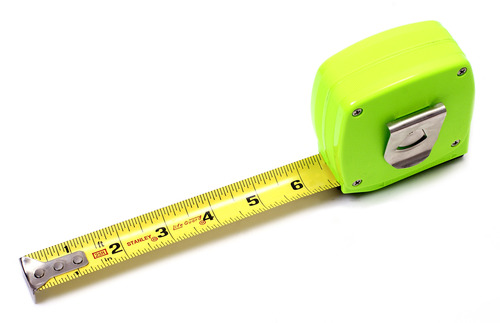I don’t want to tell tales out of school, but 73% of the teachers I surveyed believe that students today are less polite than when the teachers were themselves students. A similar proportion of teachers (71%), also say that today’s ADULTS are less polite.
These results are in line with the attitudes of parents I surveyed—see blog post of October 18, 2014—with 75% of parents saying that children today are less polite than were children when the parents themselves were growing up.
I asked these teachers, counselors, and school administrators what they see as the causes of this perceived decrease in polite behavior.
Many cite a general decline in cultural standards.
“Society has become more accepting of rudeness.”
“Relaxed rules seem to lead to more casual behavior.”
“Less emphasis on moral character. Less involvement with religious services.”
“Not only is less emphasis put on behaving politely, our culture has turned bad manners into entertainment.”
“Children are not corrected when rude anymore, so they are not aware of their rudeness.”
“A cultural emphasis on individuality lessens the ability to see the viewpoint of others and have empathy.”
“Children expect to be ‘catered’ to. It is concerning.”
Other teachers lay the blame at the parents’ doorstep.
“Parents don't teach manners anymore.”
“They are less inclined to punish children for fear of ‘stifling their growth.’”
“They feel too overwhelmed to deal with discipline.”
“They want to be their children’s friends and not their parents.”
“I think a lot depends on the family's expectations and the examples they set. I teach middle school and the kids vary from extremely well-mannered to quite rude. They all attend the same school in the same neighborhood, leading me to think the parents' expectations have a great effect.”
“Children are less polite because they are allowed to be so.”
“They are not told to respect their elders as parents did in the past.”
“Parental involvement is lacking where I work. Many use the TV as a babysitter and spend little time talking to or teaching their children.”
“Good manners for children should be near the top of every parent’s to-do list.”
And, of course, media and technology come in for their fair share of blame.
“Everyone is moving faster now.”
“The increased use of online conversations desensitizes kids into thinking that there really isn’t a person on the other end, thereby conditioning them to act inappropriately when a person is truly present.”
“Less face-to-face interaction.”
“Too much time on hand-held devices. People need to look up and make REAL connections.”
“I blame reality TV shows.”
“Poor role models on television and in music.”
“Children see more vulgarity, violence, and rude behavior in the media.”
“Influences of technology—people being glued to games, smart phones, digital conversations, etc., and not knowing/caring how to interact with real people.”
“Students have trouble focusing on conversation and instead focus on their phones. They think that being blunt or rude is acceptable since they are honest.”
“I felt that I was very polite when I was a student, but that could have been my perception. Perhaps I was just as distracted with note writing as the students today are with electronics.”
Many of the educators who responded to the survey offered thoughtful analyses of the reasons they believe students today are less polite than when they were growing up.
“Students feel entitled. They believe that respect needs to be earned no matter who you are. As a teacher that means we need to earn the respect of students.”
“Respect for adults is less than when I was a kid. Students will say and do things to an adult authority figure that my classmates or I would have never dreamed of doing or saying.”
“We have been so concerned about harming students' self-esteem that we haven't taught them proper manners.”
“There’s less focus on honing interpersonal skills both in the home and at school.”
“Parents are always ‘jumping in’ to ‘rescue’ their children when another adult, such as a teacher, reports a problem.”
“This generation of students suffers from entitlement as their “latch-key” parents overcompensate for the lack of care they received as children. This is, after all, the generation where everyone receives a trophy or award simply for participating!”
“Too many teachers try to be cool, to be friends with students. Students get mixed signals when this happens.”
“Working in a school system as well as an Out of School Time program, I see the vast difference between behavior and manners in children. In the traditional school system, children challenge authority to save face in front of their peers. In an OST setting, it is much more relaxed and children don't feel the pressure to misbehave/challenge authority. I truly believe it's because of the way we set up structures within our programs.”
Of course, in focusing on the problem it’s easy to overlook the many polite, respectful, and compassionate students that do their parents and teachers proud.
“I think it is a myth that students have become less polite over the years.”
“The majority of students I work with are, for the most part, very polite—more so than way back in my school days.”
“I work with kids all the time and I find they are considerate and respectful.”
"I'm always really struck when I meet a polite child! It's great!”
The message from these educators is that polite students don’t happen by accident. They are the result of parents who value and teach good manners. And this can be reinforced by school communities that, in the words of one teacher, “…place great value upon caring for each other and being sensitive and aware of other people's feelings, perspectives and needs.”
I followed up this question by asking teachers where they think teens are most likely to learn good and bad manners. Not surprisingly, parents are cited as the strongest influence for learning good manners, followed by friends and teachers. When it comes to where teens learn bad manners, friends are cited as the biggest culprit, closely followed by parents and media.














